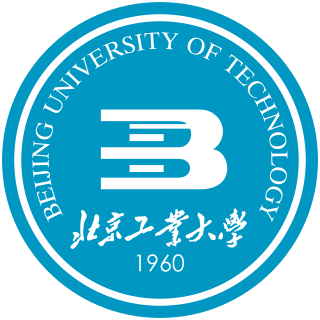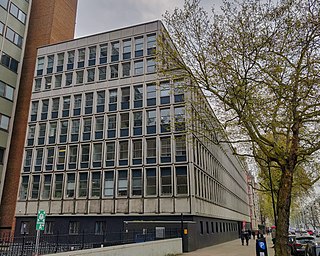The Wharton School is the business school of the University of Pennsylvania (UPenn), a private Ivy League research university in Philadelphia. Established in 1881 through a donation from Joseph Wharton, a co-founder of Bethlehem Steel, the Wharton School is the world's oldest collegiate business school.
Engineering management is the application of engineering methods, tools, and techniques to business management systems. Engineering management is a career that brings together the technological problem-solving ability of engineering and the organizational, administrative, legal and planning abilities of management in order to oversee the operational performance of complex engineering-driven enterprises.

Cochin University of Science and Technology (CUSAT) is a state government-owned autonomous university in Kochi, Kerala, India. It was founded in 1971 and has three campuses: two in Kochi and one in Kuttanad, Alappuzha, 66 km (41 mi) inland.

IMT Nord Europe or École nationale supérieure Mines-Télécom Lille Douai is a French graduate school of engineering. It is located in the Hauts-de-France region, shared between 2 campuses: the science campus of the University of Lille ; and the city of Douai. It is accredited by the Commission des Titres d'Ingénieur (CTI) to deliver the French Diplôme d'Ingénieur.

Carnegie Mellon Silicon Valley is a degree-granting branch campus of Carnegie Mellon University located in Mountain View, California. It was established in 2002 at the NASA Ames Research Center in Moffett Field.

The Beijing University of Technology is a municipal public university in Chaoyang, Beijing, China, with more than 20,000 students. It is affiliated with the City of Beijing and funded by the Beijing Municipal People's Government. The university is part of Project 211 and the Double First-Class Construction.
The School of Engineering and Applied Science (SEAS) at the George Washington University in Washington, D.C. is a technical school which specializes in engineering, technology, communications, and transportation. The school is located on the main campus of the George Washington University and offers both undergraduate and graduate programs.

Karachi Institute of Economics and Technology (KIET) (Urdu: درسگاہِ کراچی برائے علومِ معاشیات و فنونِ سائنسی) was established in 1997. KIET received recognition by the Higher Education Commission (formerly named UGC) vide letter no. 15-22/UGC-SEC/97/1291 dated 1 August 1998. HEC ranks KIET as 8th best university in Business/IT category.

The Faculty of Data and Decision Sciences is an academic faculty of the Technion and the oldest such department in Israel. The department is currently headed by Prof. Rann Smorodinsky and is based in the Cooper and Bloomfield buildings at Technion City. The department employs 52 faculty members, who as of 2023 served a total of 500 graduate and 1000 undergraduate students.

The Faculty of Technical Sciences is a higher education institution located in Novi Sad, an independent part of the University of Novi Sad. It was founded on 18 May 1960 and today it is the largest faculty in Serbia by number of students and one of the largest in the region. As of 2020–21 academic year, it has a total of 15,742 students.
The College of Information Sciences and Technology, also known as the College of IST at Pennsylvania State University was established in 1999. Headquartered at the University Park campus in University Park, Pennsylvania, the college's programs are offered at 21 Penn State campus locations. Dr. Andrea Tapia currently serves as the college's interim dean.

The Gubkin Russian State University of Oil and Gas is a public university in Moscow, Russia. The university was founded in 1930 and is named after the geologist Ivan Gubkin. The university is colloquially known as Kerosinka, meaning 'kerosene stove'.

Dharmsinh Desai University (DDU) formerly known as Dharmsinh Desai Institute of Technology (DDIT) is a private institution in Nadiad, Gujarat, India and was founded on 2 January 1968.

Birla Institute of Technology & Science, Pilani - Dubai is a private technical research university and a constituent college of Dubai International Academic City. It became the international campus of BITS Pilani in 2000, making it the second campus established. It is the first Indian university to have an overseas campus. The institute is backed by the Aditya Birla Group and is one of the first six institutes to be awarded the Institute of Eminence status in 2018.
A Bachelor of Science in Information Technology,, is a bachelor's degree awarded for an undergraduate program in the information technology. The degree is normally required in order to work in the Information technology industry.

The Faculty of Engineering is one of six faculties at the University of Waterloo in Waterloo, Ontario, Canada. It has 8,698 undergraduate students, 2176 graduate students, 334 faculty and 52,750 alumni making it the largest engineering school in Canada with external research funding from 195 Canadian and international partners exceeding $86.8 million. Ranked among the top 50 engineering schools in the world, the faculty of engineering houses eight academic units and offers 15 bachelor's degree programs in a variety of disciplines.

The University of Applied Sciences Offenburg, with its head office in Offenburg and a branch in Gengenbach, is a German university owned by the state of Baden-Württemberg. It is one of the most important educational institutions in the southern Upper Rhine area. Currently, about 4,090 students are enrolled.
Boston University Metropolitan College (MET) is one of the 17 degree-granting schools and colleges of Boston University.

The Department of Computing (DoC) is the computer science department at Imperial College London. The department has around 50 academic staff and 1000 students, with around 600 studying undergraduate courses, 200 PhD students, and 200 MSc students. The department is predominantly based in the Huxley Building, 180 Queen's Gate, which it shares with the Maths department, however also has space in the William Penney Laboratory and in the Aeronautics and Chemical Engineering Extension. The department ranks 7th in the Times Higher Education 2020 subject world rankings.

The Louvain School of Engineering or École polytechnique de Louvain (EPL) is a faculty of the University of Louvain, Belgium, founded in 1864. Known as the Faculty of Applied Sciences prior to 2008, it currently operates on the campuses of Louvain-la-Neuve and UCLouvain Charleroi.